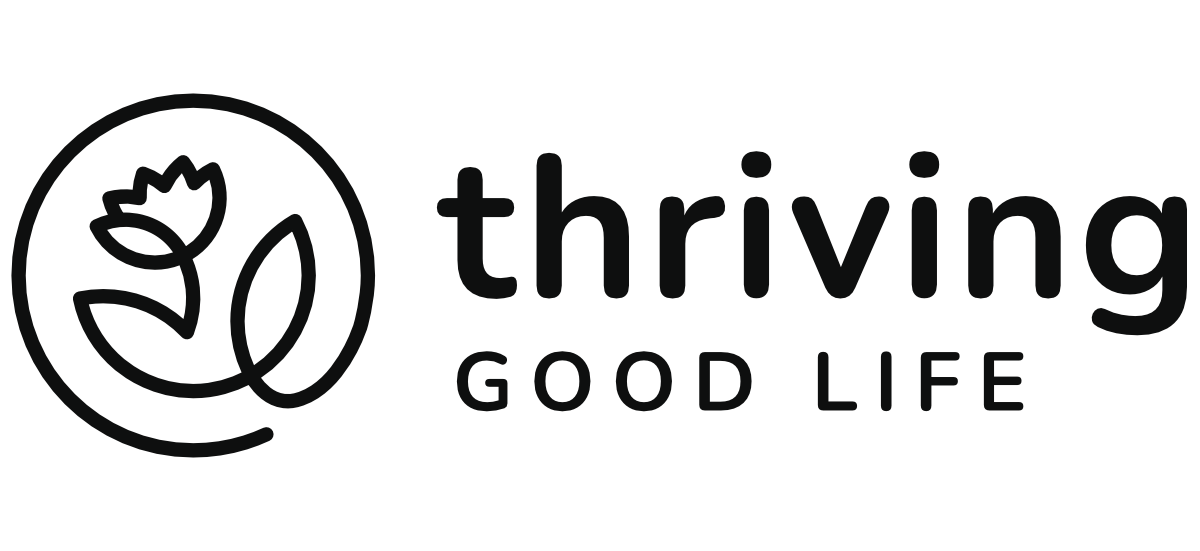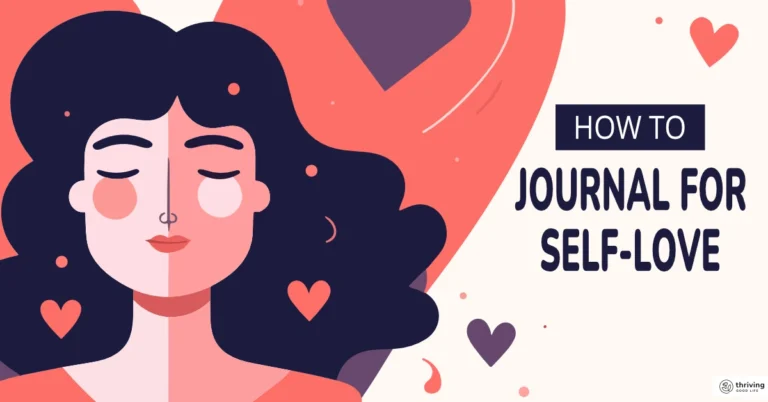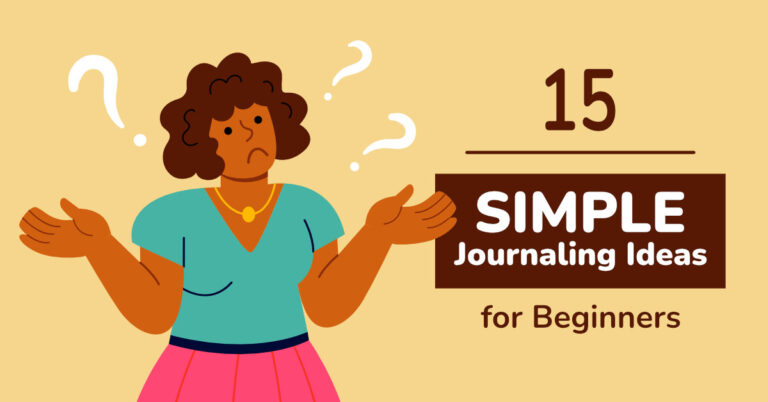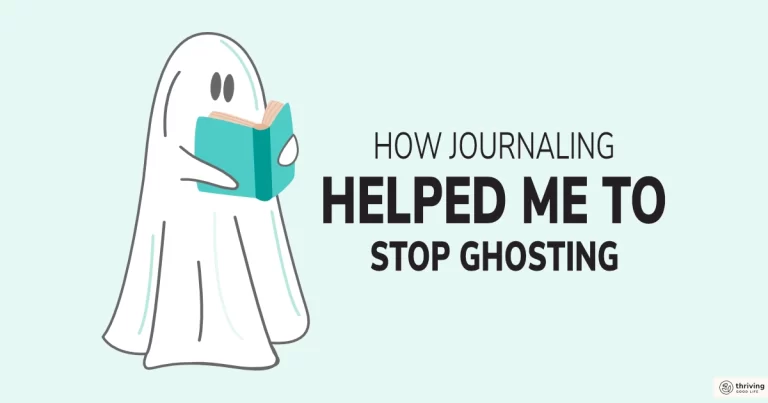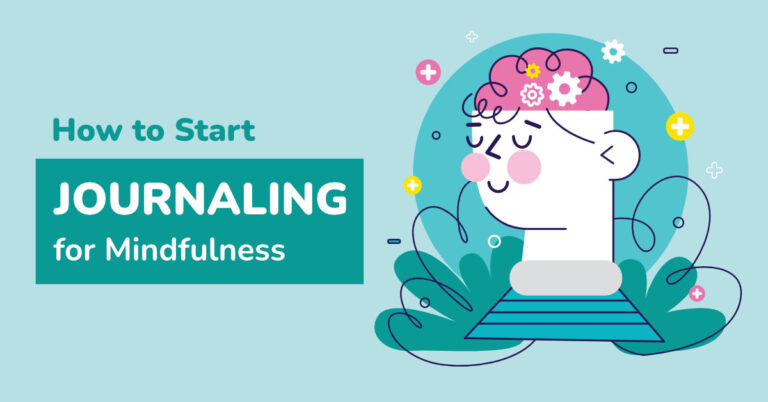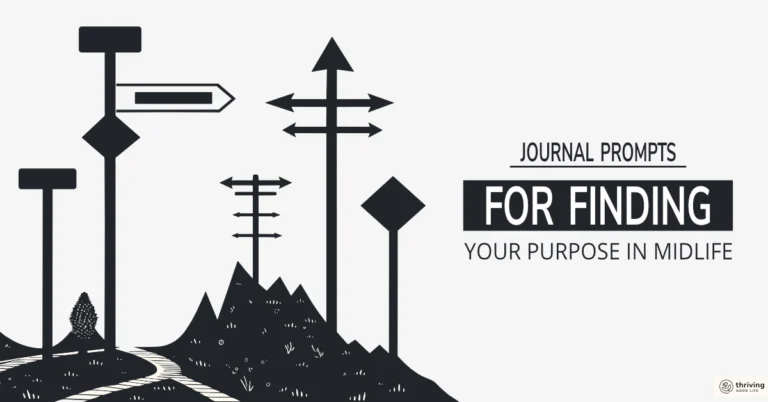I have this friend. She has an addiction.
Every time she sees a blank notebook she likes, she buys it.
Big ones. Small ones. Spiral ones. Ones with cheesy ass quotes on them. And ones that simply have the word ‘journal’ embossed across the front.
The thing is, most of them just sit pretty on a bookshelf.
Or get stuffed into a drawer. Unused. Unloved.
I know she’s not alone in this bizarre behaviour because… confession time: I’ve got a few blank notebooks patiently waiting to be christened.
And when I asked a bunch of other people, they admitted to being notebook hoarders as well.
Something tells me, you also suffer from this affliction.
You have my condolences.
There are two reasons why people buy a notebook and don’t use it:
- The fear of messing it up with our scraggly handwriting.
- We don’t know what the hell to use it for. We only bought the thing because we thought it looked pretty.
I can’t help you with the first reason (umm have you seen my handwriting?)
But I do have a few suggestions for the second one.
Hint: they’re all self-care inspired.
So let’s turn those sad, empty notebooks into intentional well-being tools.
29 Ways to Use an Empty Notebook
1. List Mood Music
We all have days when we feel like crap. And then we listen to music, and suddenly things don’t seem so bad.
Create a playlist of songs that suit your different moods. This can be feel-good music, reflective tracks, or sad tunes (ever notice how soothing it is to cry your heart out to a sad song?)
Playing the right song at the right time can brighten a dark day, boost energy levels, or help with the grieving process.
2. Create Self-Care Collages
Here’s a playful way to visualise your self-care activities.
Cut out pictures, quotes, and words from magazines. Draw, doodle, or print off images from the internet. Or use your own photographs. Anything that gets you thinking about your self-care creatively.
Once you have a nice stack of images and words, flip through them.
Think about which ones resonate with you or inspire you to take better care of yourself. Blank out a whole page (or several pages) in your notebook, and glue down those images.
Every time you work on a self-care activity put it in your notebook.
Then when you’re done with an activity, check it off with a big X or a star.
You’ll have a beautiful visual representation of all the things that make you feel good. And that will motivate you to carve out more ‘you’ time.
3. Hoard Journal Prompts
Have you ever stumbled across a really good journal prompt, written it down someplace, but forgot where you wrote it? It’s annoying.
But take one of your empty notebooks and have that be the dedicated keeper of your random finds. Fill it with your favourite prompts, and self-discovery questions. Use these prompts whenever the mood strikes.
4. Plan Meals Without the Faff
Do you struggle when it comes to preparing meals? Do you lose the patience to cook anything, and end up binging on snacks?
Or do you get frustrated when you open the cupboards to find you’re three ingredients short of your favourite recipe?
Turn a blank notebook into a meal planner. Then prep your meals for the week in advance.
Fill the pages with recipes and snacks you want to eat, along with the shopping lists. If there are recipes you want to use more than once, photocopy them and stick those pages into your notebook.
Buy all the ingredients you’ll need, and check them off your list as you shop.
This will make preparing healthy meals easier, and food shopping less stressful. And no doubt save you time in the kitchen.
5. Plan and Track Life Goals
If you want something in your life to go a certain way, document what goals you want to achieve in life, personally and professionally.
Then, write down everything you’re going to do to realistically influence, plan, and keep track of those goals.
6. Write Letters to Future Self
Ever write a letter or journal to your future self? Give a go.
Include what you’ve learned, how you’ve changed, what accomplishments have you made, and how you would advise your future self to live.
7. Track Your Mood
Record your emotions, feelings, and moods on a weekly basis.
That way you can see and track related to your emotional highs and lows.
If you notice certain things make you feel bad, you’ll know what’s causing it. And if you know the root cause, you’ll know what you need to change to feel better.
8. Prayer Journal
This could be a great empty notebook idea if you’re someone who connects with prayer. Use your notebook to document what you prayed for, and how it made you feel afterward.
Your prayer journal can also help you realise whether the things you pray for are truly in line with the life you want to live.
9. Meditation Journal
Similar to a prayer journal, but for meditating.
Record the different types of meditation you try. How did those meditations make you feel afterwards? What results did you get i.e. did it help you sleep better? Your thoughts about what worked for you and what didn’t.
If something worked in one session but not another, note that down too.
10. Skills and Hobbies You Want to Try
What’s the most powerful thing you can do to build your self-confidence?
Take up a new hobby or activity where you’re learning new skills.
The more we learn, the better we feel about ourselves, our beliefs and our abilities. Plus learning new things is fun, and it opens the door to meeting others with the same interests as you.
So, make a list of activities that peak your curiosity.
Then make a plan to try each one out.
11. Gratitude Journal
Fill your cup with a dose of positive energy.
Use your empty notebook to reflect and focus on the good things that happen in your life, and why they make you feel thankful.
You can choose to write down three things you’re grateful for each day, or create gratitude lists on the fly.
12. List of Core Values
Do you know what’s most important to you in life?
Do you have them written down? No?
Pick up one of those empty journals and start filling it with a list of values.
If you want to get really decorative, you could dedicate a whole page to a key principle and surround it with doodles that represent that value.
13. Self-Care List
Stay on top of your self-care game with a checklist.
Include all the things you need in order to take care of yourself mentally, physically, spiritually, and emotionally. Having this all written down will give you easy access to self-care ideas during hectic times.
14. Self-Care Planner
You’ve got your self-care list. But what good is that if you don’t schedule your activities? You’ll need to add a planning element too.
Use your blank notebook to map out your self-care goals and activities for the day, week, or month.
A planner can be helpful if you find it difficult to stick to routines.
15. Self-Care Challenge
You could set yourself weekly or monthly challenges where you focus on one key area of your physical, spiritual, or mental health.
For example, you could commit to a week of kindness to others. See how it makes you feel. This kind act doesn’t have to be anything big – you could pay for a stranger’s coffee or compliment a friend on their hair.
Maybe go the extra mile and donate your time to a local charity.
16. Collect Affirmations
Self-affirmations are positive statements that can help change our thinking patterns. That in turn can affect how we feel about ourselves on the inside.
Use your notebook to log all the kind expressions you want to hear. They could be things like: “I am happy that I can learn from the mistakes I make,” or “I am capable of more than I give myself credit for.”
Obviously, choose affirmations you actually believe in. That way they’ll mean something to you when you repeat them back.
17. Track Your Sleep
If you struggle to fall asleep at night or wake up feeling tired, use a blank notebook to track your sleep patterns.
Make note of what time you go to bed and what time you wake up each morning. Also document how long it takes for you to fall asleep and the quality of your sleep:
Tracking your sleep in this way can help you understand why you feel tired or wired at different times of the day.
18. Start Mindfulness Journaling
Mindfulness is the practice of being fully in the moment, without judgment. It’s about allowing your thoughts to flow freely, and noticing the changing nature of your mind over time.
Mindfulness journaling is a great tool for training your mind to notice where you’re spending your energy (or lack thereof). This gives you insight on how to better prioritise the other areas of your life.
This is how you start: Use your notebook to capture moments throughout the day, when you feel at peace or notice you’re feeling agitated. Simply write down what’s on your mind without overthinking it.
19. Keep a Food Diary
If you’re trying to eat healthier, a food diary is a really helpful tool.
Write down everything you eat or drink each day. Include meals, snacks, beverages (even water). Do this for at least a week.
Make a note of your mood and energy levels, both before and after eating. Along with anything else that might affect your appetite, like stress. Once you have that all jotted down go back through your notebook and look for patterns.
Do certain foods make you feel good? Bad? Are there certain times of day when you crave something specific? What can you do to address these issues going forward?
Repeat the process each week to see how you’re progressing.
20. Love Note Jar
Not a physical jar, but one you draw in your notebook.
The idea is that you fill it with notes, praise, compliments, and messages of support. You can write short phrases like: “you’re awesome”, “I appreciate you”, “you’re doing great”.
Start by drawing a jar on an individual page. Once you’ve filled that with love, move on to the next page. Draw a jar there. And so on, until your empty notebook is full.
When times get tough, and you’re feeling low, flip open a page to read a few comforting words. It’ll lift your spirits.
21. ‘Things to Celebrate’ List
What did you do today, or this week that was worthy of acknowledgment?
Did you finish a big project at work? Helped someone out? Get through the day without checking your phone 10 times?
Stopped yourself from scoffing that second slice of chocolate cake?
Refrained from throttling an annoying relative?
Or some other good thing that made you feel proud.
Write your moments down in your notebook, along with ways you can celebrate your actions. The rewards don’t have to be big. You could buy yourself a small treat, watch a funny movie, or take the afternoon off to relax. You decide.
22. Energy Zappers
When we can recognise the things that drain our energy, we’re in a better position to do something about them.
Bring awareness to the situations or people that zap your energy. From family members or friends who criticise or complain all the time. To spending too much time on social media. To eating too many sugary snacks throughout the week.
When you’re feeling deflated, and not sure why, refer to your list of energy drainers, and see what you can cut back on.
23. The Stress List
In a similar vein to the list of energy zappers, a stress list can help you recognise when pressure is building up. That way you can think through ways to manage stressful situations before they become overwhelming.
List environments of circumstances that make you anxious.
For example unrealistic demands at work, growing debt, uncertainty about the future, moving to a new house, health-related problems.
Next to each item, write down a few notes on how it’s making you feel, what you can do to reduce your stress, and who you can turn to for support.
Here’s an example:
The thing that’s stressing me out: My boss at work is asking me to do tasks she should be doing herself. It’s interfering with my ability to get my work done on time, and I’m feeling angry, resentful, and underappreciated.
What I can do about it: Speak to my boss. Explain how I’m falling behind with all these extra tasks. Placate her by asking for her advice on what I should prioritise. Stay calm!
Who can I talk to about this: My friend Bernice is a really good listener. She’s also had experience of dealing with a difficult employer in the past. Maybe she has some thoughts on how I can get through to my boss.
24. Favourite Quotes
Reading a well-timed quote can give you a boost when you’re feeling down. Or inspire you to take action on something.
Use your blank notebook to write down meaningful quotes and sayings.
These could be anything from a motivational sentence, to a poem that you can relate to.
25. ‘Things to Say No To’ List
Do you struggle with saying no to people?
Use this empty notebook idea to pre-planning your responses to unwelcome requests that cause stress.
First, write down all the things you need to say no to.
Next, write scripts you can use to politely decline unwelcome requests.
Here are some examples:
I want to say no to: Drinks this Friday night with the girls. I need to rest.
So I will say: “Thank you for the offer, but I have other plans tonight.”
I want to say no to: Being asked to join a new initiative at work when I’m already snowed over.
I want to say no to: To my mum calling for a casual chit-chat when I’m trying to finish an urgent project.
So I will say: “Thank you for thinking of me, but I do not have the capacity to take that on.”
So I will say: “I appreciate the call, but I can’t talk right now. I will call you back when I have finished what I’m working on.”
26. Habit Tracker
If you’ve been trying to exercise more, quit smoking, drink more water, or change some other behaviour that’s been irritating you, you might want to consider turning one of your notebooks into a habit tracker.
By recording your daily activities you can become more aware of your habits. And if you’re more aware of them, you can start to trade bad habits for good.
Here’s a template for a habit tracker you can use. Print out several copies of this, stick them in an empty notebook, and track your habits daily.
27. Happy Lists
Note down all the objects, thoughts, people, and practices that make you happy. You could write lists of your favourite things – whether it’s food, movies, TV shows, travel destinations, music genres, books and authors.
Or simple pleasures like your morning coffee, a warm bath, getting more sleep, being out in nature, interactions with friends or family members, or quiet moments to yourself.
List whatever helps you recharge your batteries.
28. Time Tracker
Like a habit tracker, but this tool focuses on how much time you’re spending on tasks or activities.
If you find yourself getting to the end of the day, and not knowing where your time went, a time tracker is for you.
You’ll be able to identify your biggest time drains, and help get yourself to a place where you can be more intentional about how you spend your time.
Start by tracking for a week – simple things like how much time you spend watching TV, on social media, time spent reading, working, doing household chores, writing or socialising each day.
Then analyse the results.
Are there any activities you can cut down on, or eliminate altogether?
Can you delegate some of your responsibilities to others so you can free up some more time?
29. Obstacle List
Make a list of all the obstacles preventing you from being more intentional about your self-care. Then tackle them one by one.
Examples:
#1 Obstacle: I don’t have time#2 Obstacle: It feels selfish#3 Obstacle: I’m too tired
Flip those obstacles into positive affirmations, and write them down. Then repeat them to yourself every day until they sink in.
So, if your obstacle is lack of time, your affirmation could be:“
I make time for self-care by getting up 10 minutes earlier each day.”
But words alone are not going to be enough. You have to make sure you follow through by actually getting up 10 minutes earlier.
…
There you have it – 29 ways to make use of your empty notebooks.
No more excuses for keeping a pile of unused notebooks lying around the place. Start putting those blanks to use, by filling the pages with self-care tools that will help you thrive.
